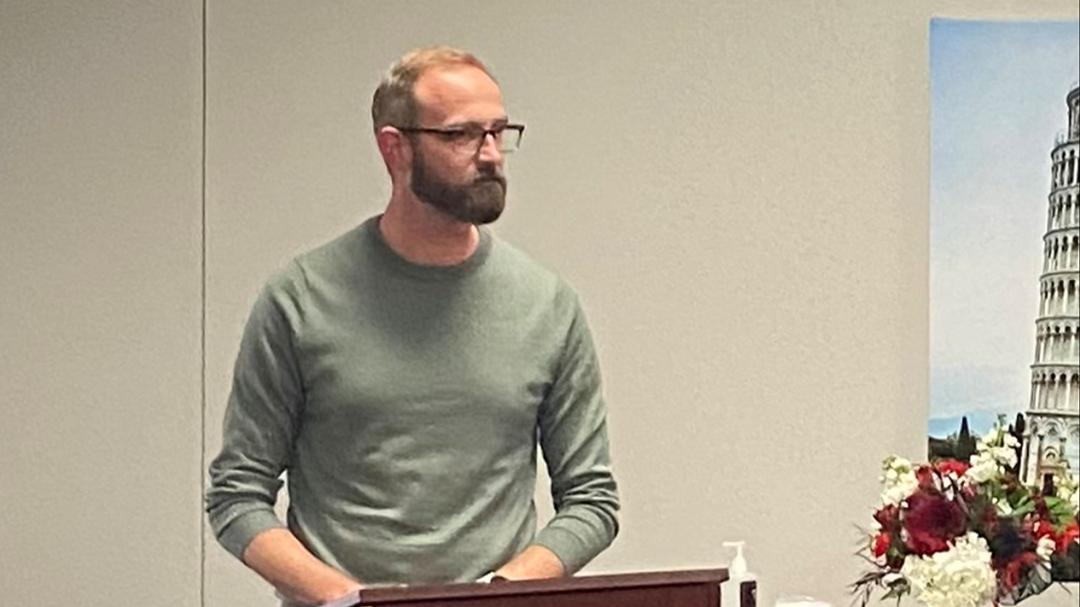Texas Tech history alumnus overcomes addiction struggles and pens his own narrative as a successful attorney.
It took a while, but Alex Good finally untangled the somewhat frayed and disconnected strands of his own origin story.
Not the one that begins at birth. That’s too convenient and easily confirmed. Glance at a driver’s license or some other formal documentation and the answer should be clear.
And not one of those superhero stories involving far-off planets or bites from radioactive spiders.
This is another kind of origin story, a legitimate eye-opener. The one when someone makes the most of a second chance, or overcomes self-inflicted sabotage, or stares intently at the dark side of one’s own human nature and experiences a rebirth.
“The older I’ve grown and the more people I’ve talked with, the more I realize how everyone has imposter syndrome, and most people are just doing their best,” Good ruminates while reflecting on the vagaries of life.
Count Good among this group, one who has wrestled with imposter syndrome (an internal feeling of being a fraud despite external success) and somehow pinned it to the mat. He has friends, mentors and encouragers of all kinds to thank for this development, and he also feels indebted to Texas Tech University because it was at the intersection of this place with his life that a triumphant metamorphosis began to occur.
“There is a magic in my life today that the people at Texas Tech helped me develop in fitting in my own skin,” he said, “as an academic, professional and, frankly, as a human being.”
These days, Good is an attorney with Ogletree Deakins, a sprawling law practice with locations across the country housing its cadre of 1,000 lawyers. Good works out of the San Antonio office and specializes in employment claims. Just last year, he was recognized as a Fellow of the Texas Bar Association, a significant professional milestone that pays tribute to his contributions to the legal system.
It is an august accomplishment, one reserved for attorneys who have made their mark on the justice system.
But all of this might have eluded Good had he not, with a whole lot of help and a little bit of grace, worked his way back from the precipice of disaster, where alcohol addiction and apathy conspired to strangle his initiative and choke his motivation.
It all started in Lubbock
Having grown up in southwest Lubbock with a father who worked in the electronics shop of the Department of Chemistry & Biochemistry at Texas Tech, becoming a Red Raider seemed to be Good’s destiny.
Good attended Whiteside Elementary and then took advantage of the magnet program at Cavazos Middle School. It was there that his dad picked him up after school each day and brought him to campus. The two-hour window until the end of his dad’s workday allowed Good to put his rollerblades to use as he explored and acquainted himself with the Texas Tech landscape virtually every day for the next few years.
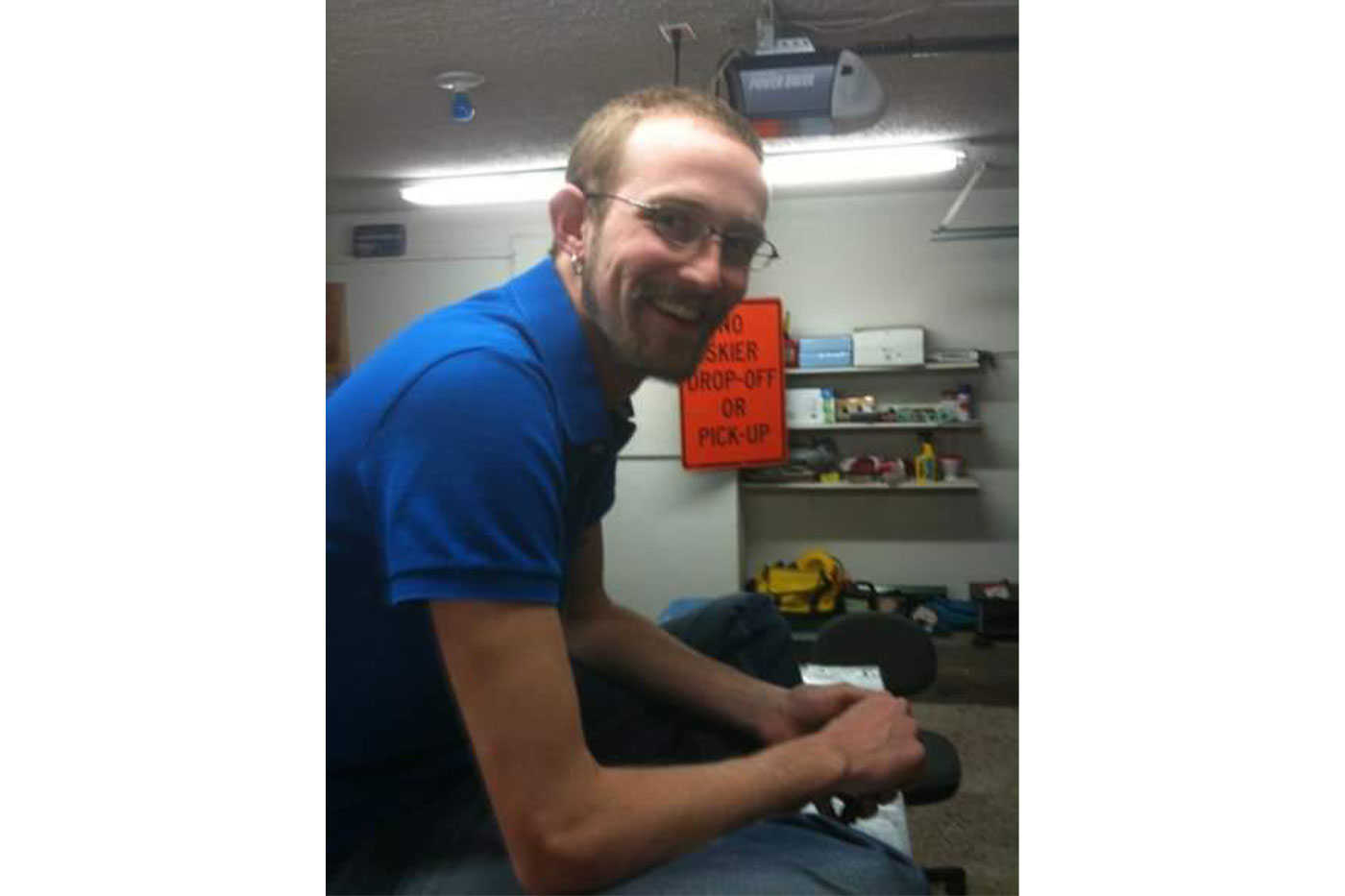
“Because I was a Lubbock native, Texas Tech became a very obvious option for me, and it really became the school I wanted to be at,” he said. “But it also became the school I needed because I am a byproduct of the Center for Students in Addiction Recovery.”
The center, a longtime point of pride on the Texas Tech campus, was founded by Carl Andersen in 1986. The center offers a pathway for students to become Licensed Chemical Dependency Counselors (LCDC). Because some students pursuing academic requirements were also in recovery from substance abuse, Andersen launched the Collegiate Recovery Community, in which students impacted by substance abuse received scholarship support.
“The best way I can describe the center is it helped me find a program to save myself,” he said. “The center found me at a funny time and changed everything forever. It helped me develop all the other necessary skills it takes to succeed as a student.”
Eventually and uncomfortably, the center appeared in Good’s life. And it stayed there, filling a void and helping smooth the rough edges of who he was at the time.
“I have known Alex for some time,” said Buddy Gerber, executive director of the center and an assistant professor in the College of Health and Human Sciences. “I remember those days when Alex was trying to navigate life, and I know one of the things that helped him do that was having a place that provided space for him to do college – a safe environment and home base.”
It didn’t happen overnight. When Good arrived on campus in the fall of 2004 as an electrical engineering and computer science major, he was prepared for college, but he wasn’t prepared for the responsibilities that accompany this significant transition.
He also had begun drinking for the first time the summer after graduating from high school.
“When I turned 18, I thought I would try it,” he said. “I didn’t go to parties because I thought I could be responsibly drunk, but I would get to drink No. 6 on the evening, and I was just getting started and thought, ‘This is fun.’”
The first time he got drunk, he vomited. That didn’t deter him from the next time, when he had way too much to drink in Austin and a friend pulled him aside and said he thought Good had a drinking problem. Good, a veritable novice drinker, was confused.
Turns out, though, the friend was spot-on. Good recognized the warning signs accompanying alcoholism.
“I had been an alcoholic from the jump,” he said. “I had the tolerance, and I had what it does emotionally, soothing away the pain. The first time I got really drunk was two weeks before college started.”
After flailing along for more than a year, Good decided to leave Tech following a summer session in 2005. He was emotionally confused and financially strapped and just needed to step away and get his bearings.
He transferred to South Plains College to lick his wounds and reassess his plans. The new surroundings didn’t provide a new result. In each of the two semesters he spent at SPC, he finished with a 1.8 grade-point average, one semester while drinking and the other while sober.
What Good needed was a community that would hold him accountable. He located that in the fall of 2008 when he applied to return to Texas Tech and compiled a 3.8 GPA. Subsequently, the center allowed him to join its community as students accepted into the center must maintain a 3.0 GPA.
Through the years, the center has had more than 1,250 students come through its doors and complete their education while learning skills and techniques to keep their addiction at bay.
The center not only meets students where they are, but its structure and routine help guide them where they need to go. No one expects progress to come easily, so long as it comes.
“One of the overarching things about this space is even when traditional college students are sobered up by the age they get to us, they are still knuckleheads and have some growing up to do,” said George Comiskey, the center’s associate director for external relations. “When Alex came to us, he was still going through some knucklehead experiences, but this was a place he could come back to and work through those things.”
For Good, that meant he was going to be a work in progress, something that continues into the present day.
“Sobriety wasn’t going to be enough,” he said. “I also had to be a good student. That’s what the center taught me and what Texas Tech made possible for me. Rock bottom wasn’t one big moment for me; I hit rock bottom because I was tired of living the same life over and over. Once Texas Tech reentered my life and the center became part of it, everything clicked into place.”
A semester later, he connected with Sean Cunningham, who was a faculty member in the Department of History at the time but now serves both as a history professor and the associate dean for administrative affairs in the College of Arts & Sciences. In some ways, history became Good’s last, best option.
“I chose history then because I wanted to be a high school teacher,” Good recalled. “But it was a degree by attrition. I tried science, and that didn’t work. I wasn’t any good at math. I had an electrical engineering computer science degree plan where I couldn’t even get out of my freshman class.
“So, I found history because of Dr. Cunningham, who was a charismatic and great teacher.”
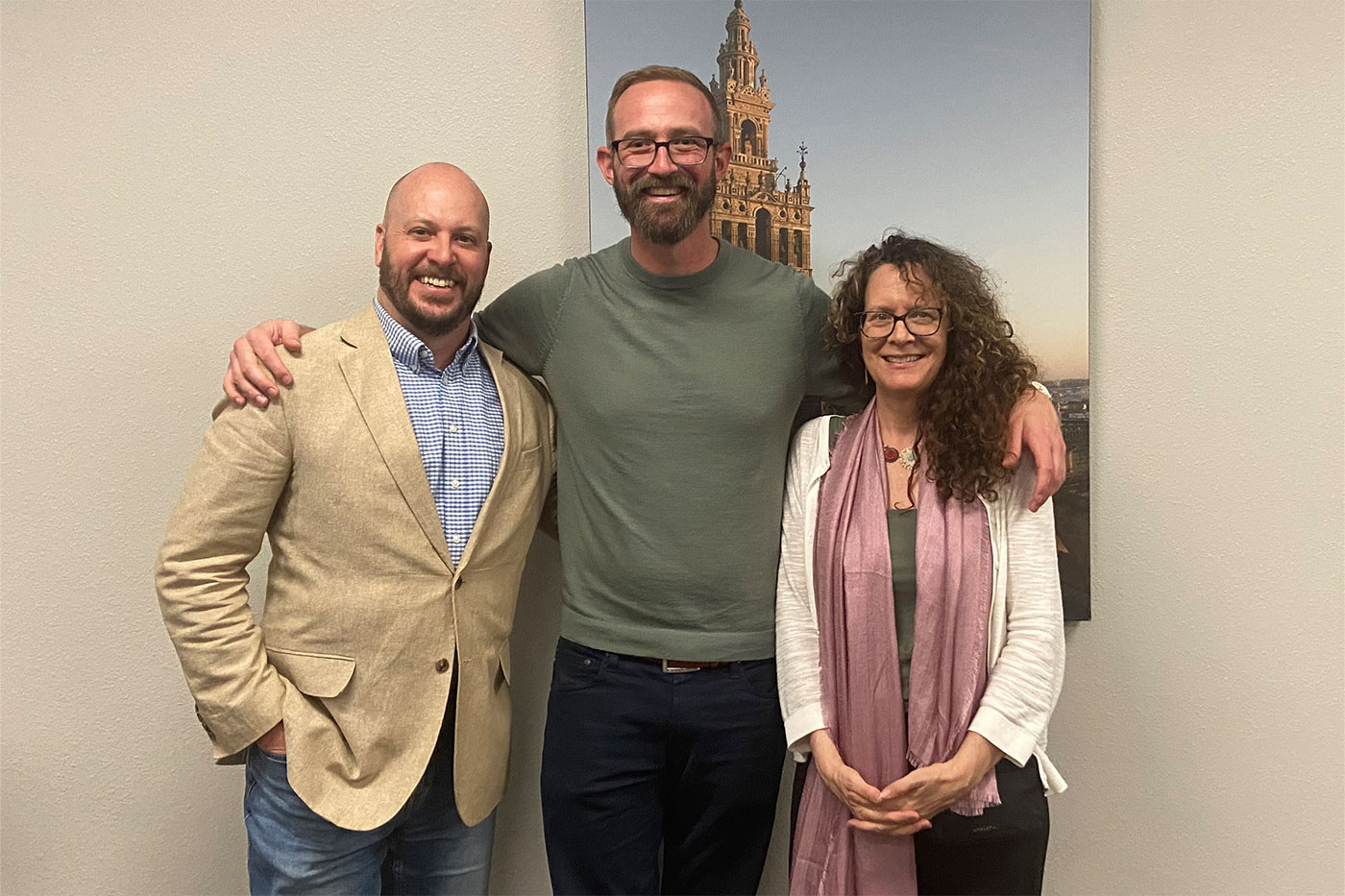
A timely point of contact
Cunningham, who holds two degrees from Texas Tech, joined the history faculty in 2007 and has been lauded multiple times for both his teaching prowess and his giftedness for building relationships with students.
He and Good first crossed paths in the spring semester of 2009 when Good was a student in Cunningham’s History of the United States Since 1945 class. It is structured to generate dialogue and interaction among students and the instructor.
“It is an upper-division course that involves quite a bit of reading and writing,” Cunningham said. “I had plenty of opportunities for dialogue with Alex during class as well as during office hours when he frequently visited in an effort to improve the research project he had started that term.”
The conversations were a much-needed point of contact for Good, and Cunningham saw something in his young student. When the semester ended and Good asked Cunningham to supervise him in an undergraduate independent readings course that fall, the mentor-mentee relationship continued to blossom.
Good continued to believe his academic trajectory would have him completing a history degree and then teaching at a local high school. Another realization occurred to him as well: College was actually enjoyable.
“Every semester, my degree plan would change, and instead of teaching high school, I was thinking that I could make a little money if I go get a master’s degree,” he said. “I thought it would be fun to teach at a community college. I went into history thinking, ‘Being a teacher can be a plan and a fallback.’”
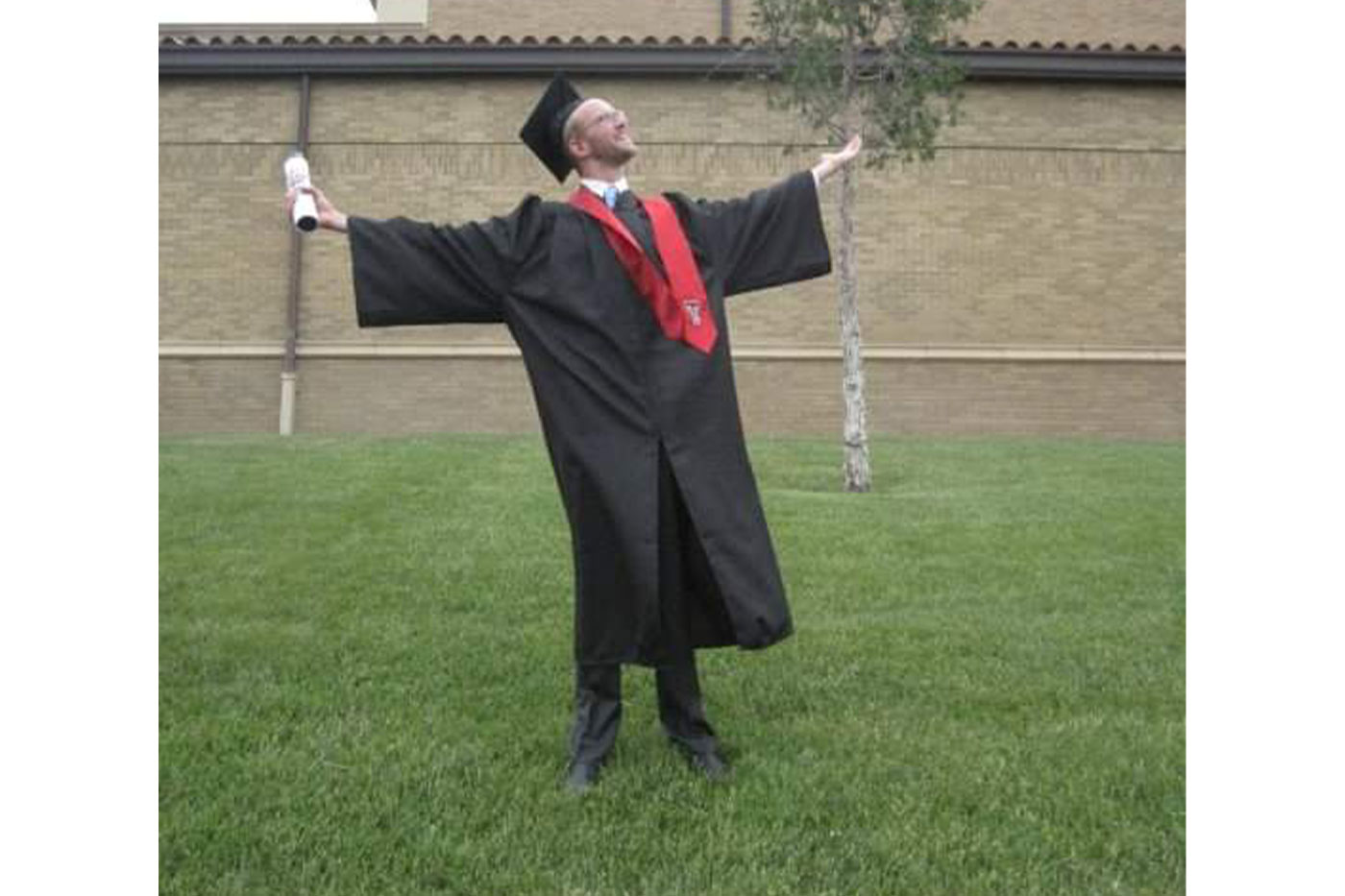
In scoping out the professional terrain as commencement approached, he noticed a common denominator among male teachers at Texas high schools. Almost all had additional responsibilities in athletics as coaches.
Not that Good had anything against coaches, but that wasn’t where he saw his life going. Growing up, he had little experience in sports, playing tennis only to satisfy a physical education requirement.
Instead, he found himself beginning to think about law school, becoming an attorney and eventually coaching others in ways beyond the athletic sphere.
Good was planning to graduate in the spring of 2010, but, because few things came easily at this time in his life, his commencement was delayed a semester as a result of self-inflicted pain. Still, getting to the finish line was a big deal despite how long it took.
“I was at the center where one of the prerequisites is to be sober,” he said. “But I was lying to them. I was not sober at the time I was participating in recovery.
“I was a terrible student because I didn’t go to class on time, because I didn’t do the reading,” he said. “I could do those things whether I was sober or drinking, but once I chose to be a student and behave like one, that’s where the magic happened.”

He made a conscious decision to get into the center and stay there. It provided the social glue to connect with others over a cigarette or cup of coffee. It was a beautifully simple change. Now, the Texas Tech campus was the place where he went to class, read and completed assignments. He would not leave until his classwork was done.
It marked quite an about-face from his previous routine where he would take inventory of class expectations and then make plans to go home, heat up a Hot Pocket and do nothing.
“I never got past the Hot Pocket,” he confessed. “It took just a slight change in my behavior in terms of staying on campus. That way, everything was finished before I called it quits for the day.”
To reinforce things, Good snagged a job on campus, giving him one more reason to stay put, and he found the more he plugged into relationships and activities on campus, the more he wanted to be part of what was going on.
The great unraveling of life
Everything was falling into place.
Until it wasn’t.
“Here’s the funny part,” Good begins.
As part of the recognition for graduating seniors, the center holds a Christmas banquet, giving students the chance to express gratitude for their experience and offer a glimpse of their future plans.
In a twist of wicked irony, Good went from expressing his gratitude to a roomful of people to finding himself arrested for driving under the influence. One moment he was sharing how far he had come. Only hours later, life reminded him how far he could fall.
“That’s what led me to become a lawyer,” he said of that 2009 moment. “That night, I was talking about how grateful I was and how the principles of recovery gave me the opportunity to graduate, but what I was, was an alcoholic. I got a DWI, and that made things challenging.”
Good was a semester away from graduation. He had been keeping his drinking a secret but had to come clean when he received the DWI. He did not want to lose the connection.
“It was me being dumb,” he confessed. “Thank goodness no one was hurt.”
The attorney who handled his case also was in recovery, and as Good watched how he advocated for him while navigating the legal twists and turns, Good’s future crystallized before his eyes.
“I never knew what a lawyer was before that,” he said. “I didn’t know what they did. To me, lawyers were people on billboards, and I didn’t even know what they were talking about. I just knew it seemed like they asked a lot of questions about people being injured.”
Suddenly, Good had a front-row seat to the judicial system. He was the defendant, and his attorney was his only point of access throughout a labyrinthine process. Good’s interest was piqued as his attorney translated the proceedings for him and made sure he understood what was happening and how it could affect him.
The DWI became the crucial moment in the 23-year-old Good’s life. He got sober in the immediate aftermath of the debacle and stayed that way.
“What I tend to hear in the rooms of recovery that really resonated with me over the next few years was sobriety is not tough when the chips are down,” he said. “It’s when I start thinking I’ve got life figured out and that I’m doing good.”
Getting ready for law school
He decided to take a year off to prepare for the LSAT (Law School Admission Test). He simultaneously worked for United Supermarkets while balancing the two computer labs where he was employed at the University Library. He was working to improve his overall GPA to make him a more compelling law school candidate.
That ushered in a time where Good became well-acquainted with the old Tom Petty lyric: “The waiting is the hardest part.” The original word from the Texas Tech School of Law was no.
“The law school rejected me,” he said. “They didn’t even waitlist me. So, I proceeded to go by the admissions office every Friday for about seven months. I would just knock on the door and be like, ‘Hey, is there anything I can do to get you to change your mind?’”
At the time there wasn’t. Good devoted himself to graduate school, working on a master’s in interdisciplinary studies with a goal of either being a well-prepared community college teacher or a graduate student with an ascendant GPA that might land him in law school.
If the door opened, attending Texas Tech’s law school made a lot of sense because he could stay in academia while the lingering impacts of the DWI slowly subsided and where he had family. Likewise, he knew he was ready for the demands of law school because he had, in his words, “cleaned up his act,” and fully committed to being a solid student.
Something else happened just a week before taking the LSAT: Good learned he was going to be a father.
“Lubbock made sense from a financial standpoint because of its cost of living,” he said. “I had my mom there, and the woman I was married to at the time was a Texas Tech grad. So, when we found out we were pregnant and that I was still going to try and do law school, that narrowed our focus.”
The young family rented a home in the Tech Terrace neighborhood adjacent to campus. Because of either Good’s constant pleas or his improving grades, he was accepted to the Texas Tech Law School.
While it was a challenging time financially, Good looks back fondly on those days.
“It was cool having the accessibility of not just home and comfort, but also the school and being present,” he said. “Being there physically was a helpful thing for me. At the drop of a hat, I could go pick up my son or do whatever life demands in five or 10 minutes. Lubbock really fit the bill for that.”
For the next few years, law school would occupy the majority of his time. Good started without a car or driver’s license and was getting to classes on a bicycle. He also was required to check in regularly with his probation officer and submit to random urine tests to ensure he was staying sober.
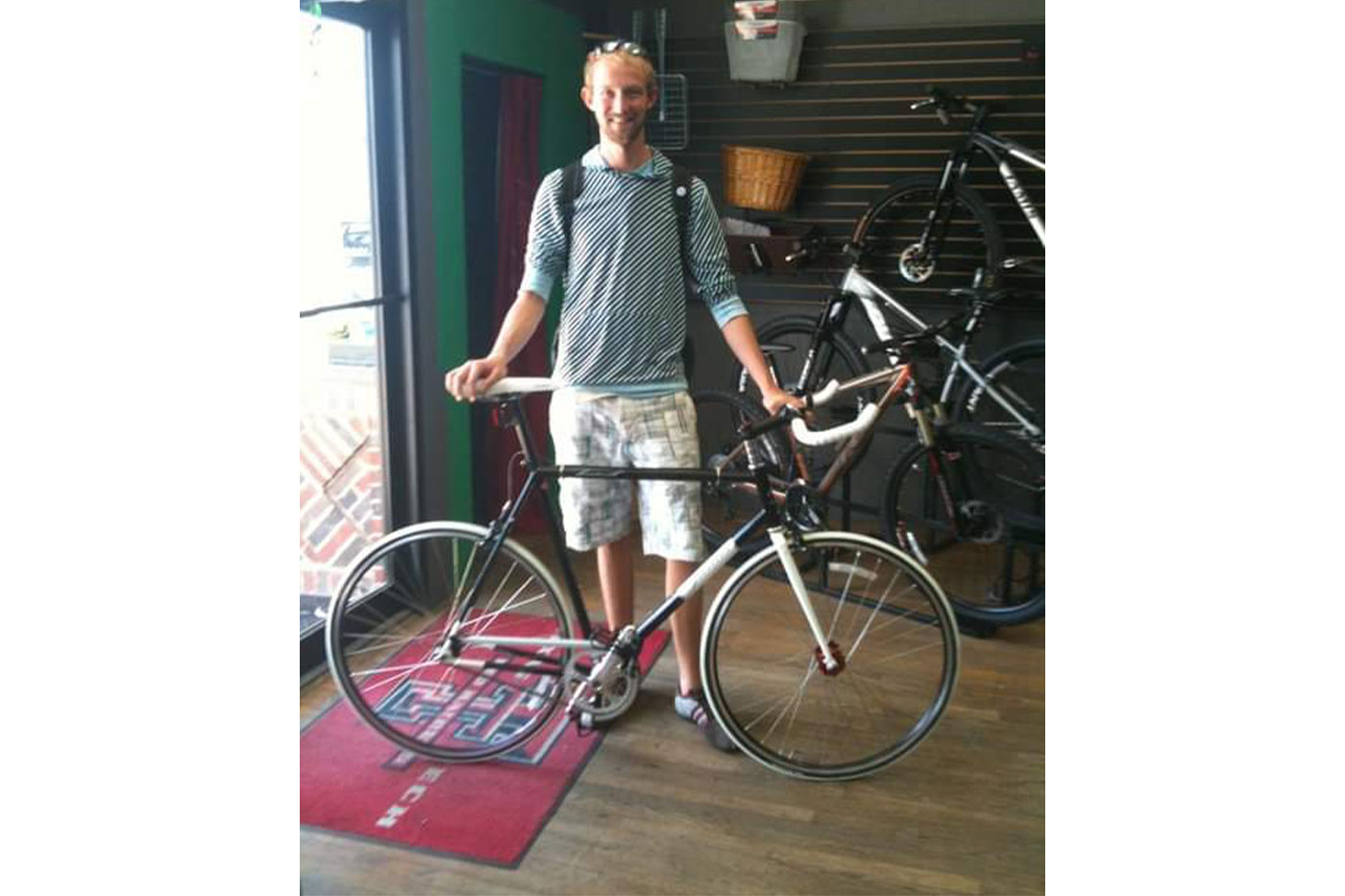
Life had quickly settled into a routine, one that became even more appealing when Good landed a job clerking for 72nd District Court Judge Ruben Reyes, who also happened to oversee the Lubbock County Drug Court.
The court was an alternative pathway for offenders who had not committed serious crimes, giving addicts treatment and help with basic needs.
If someone was diverted to the drug court, they had to follow a rigorous plan laid out by Reyes with successful completion of the plan resulting in no jail time. Good and Reyes connected because of Good’s time with the center. Sadly, Reyes passed away in December 2020 as a result of complications from COVID-19.
“He knew me when I was screwing up,” Good recalled. “So, whenever I had an opportunity to clerk for him as a law student, I remember texting my old probation officer a message that said, ‘Look how far I’ve come.’ It was a lot of fun because I wasn’t the defendant.”
From the courthouse to the … courthouse
It was quite a transition. Good’s previous trips to the courthouse had been connected to fulfilling sentencing conditions of the DWI. Now, he was sitting in a judge’s chambers for a good reason.
Soon enough, Good was driving again and experiencing significant academic success. There were some hard lessons along the way, but Good had at last turned a corner and, as of March 22, has now been sober for more than seven years.
“It didn’t come immediately,” he said of the long road of recovery. “It didn’t come at the cost of my career. I thought having the opportunity to become a lawyer would have kept me sober, but it didn’t. I thought the same thing about being a father to a young son, but it didn’t.
“I would have sworn that I never would have broken my sobriety then, but life got good and I thought I could handle it. I am someone who has been raised in recovery, like that background would help me outsmart or outmaneuver this thing.”
As a result of his own bumpy road, Good doesn’t see himself as a recovery evangelist, telling others his story to inspire them. For him, the overwhelming emotion is gratitude, and part of that gratefulness is his bad choices came with consequences.
“I know plenty of people who drink themselves into oblivion and still show up at work the next morning, and convince themselves that everything is awesome,” he said.
Good completed work on his law degree in 2014, passed the bar exam and has been a practicing trial attorney since. He finds even a little irony in this aspect of his profession.
“It’s a funny thing to say for someone who is confrontation-averse,” he said, “but I believe my character is well suited for litigation because it helps me zero in on the heart of the issue and keep that in mind each step of the way.”
One thing he does try to do is share his personal story in places where he believes it will be helpful. Good tries to get back to Lubbock to see family a couple of times a year, and he always makes time to check out Texas Tech and how it has changed. He was on campus in April to speak to students and share his story.
He said he seems to be telling his personal narrative more often these days because it seems more people need to hear it.
“I think the world needs examples of people feeling and showing their vulnerabilities,” he said. “With other lawyers, I talk about how my recovery story helped me develop the skills necessary to ask for help when I was having struggles to the core. I find when I’m willing to share the things in life that scare me, two things happen: Those things quit scaring me as much, and the person I’m sharing my story with usually gets comfortable to share the things that scare them.
“It’s hard to balance sometimes because telling my story can oftentimes sound like, ‘Look at me!’ but in reality, people being vulnerable and sharing their struggles leads to awareness. It’s like our problems get collectively smaller when we shine some light on them. It takes someone to get that ball rolling. I think that’s what I was built for, what Tech helped me cultivate.”
Texas Tech had his back
Good is certain he isn’t the only person to ever battle these kinds of personal demons but knows Texas Tech was in his corner along the way.
“Texas Tech has always been there for me,” he said. “At an institutional level, it met my needs and prepared me academically. The people who make up the institution, who carry its story and curate its future, have been great to me. My advice to any student today is to go insert yourself into the mix of things.”
Historically, students accepted to the center have compiled an average GPA of 3.75. Each year, the center awards approximately $350,000 in scholarships. To become a member of the center, students must be in recovery and sign a contract stipulating they will abide by its rules.
“It is not about achievement,” Gerber said. “It is about the journey, putting one foot in front of the other and working and being of service to other people. That is the role this place plays. Humility and gratitude are our greatest tools. When we lose those, we get in trouble.”
Finding his place on campus wasn’t just a game changer; it was a name changer. Alex Good went from struggling student to success story. He unlocked his identity, finally able to lean into who he was supposed to be.
“I like to think I am more knowledgeable and wiser, but I have to admit that I’m not perfect,” he said. “I still depend on a small group of close friends and family to check in with, share my thoughts with and stay open to their input and guidance.”
For Good, as with anyone in recovery from an addiction, the battle is always one day at a time. He spends his time on the day he has, not the day that might be, knowing full well that tomorrow is only possible if today is handled successfully.
“I’ve found that when I’m doing the best I can with what I’ve got, new doors open and I’m prepared for the opportunity,” he offered. “Doing my best today not only helps me sleep better at night and take advantage of tomorrow’s opportunities, it helps me find purpose.”

